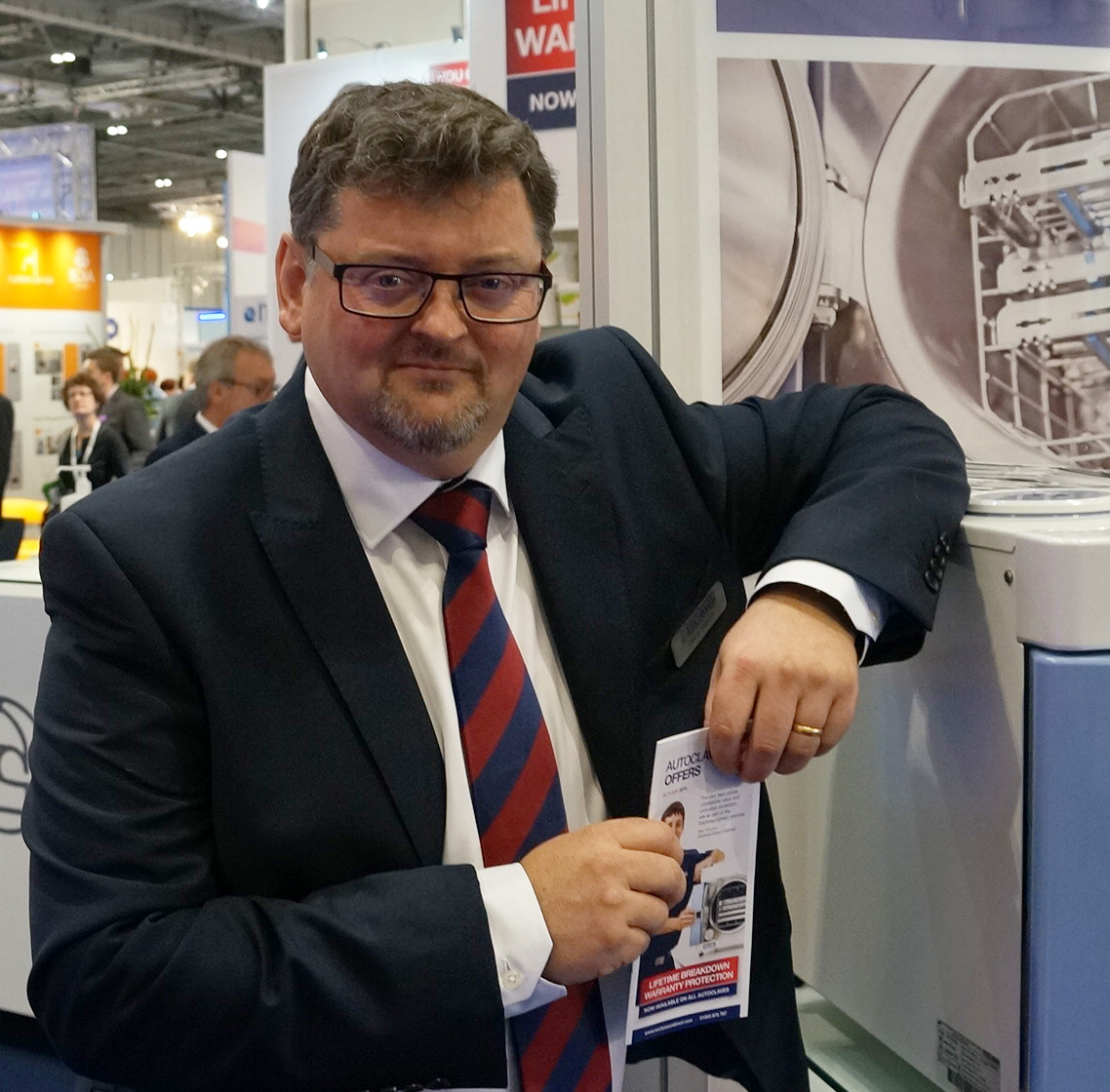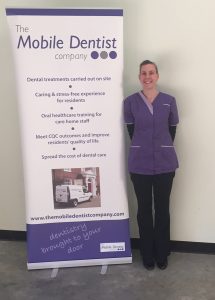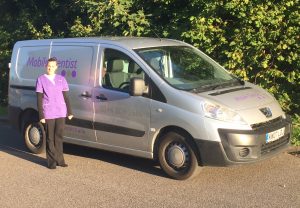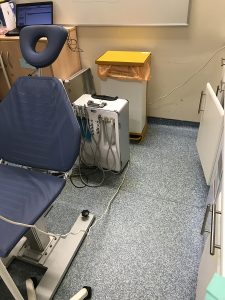Taking dentistry to the doorstep of patients – David Gibson Eschmann
Featured Products Promotional FeaturesPosted by: Dental Design 10th August 2019

As part of an exploration of dentistry in ‘unusual environments’, Eschmann hears from Helen Peachey, a dental nurse at the Mobile Dentist Company.
A trading name of Advance Healthcare Logistics Ltd, the Mobile Dentist Company offers quality private dental care throughout Kent, Essex and parts of East Sussex to individuals who need or choose to have a home dental service. This includes patients with either residential, dementia or end of life, palliative care needs in care homes and retirement villages, as well as patients in their own homes. Naturally, this unique service is not without its challenges, but as Kent’s longest standing team member Helen Peachey explains, it’s all worth it knowing that they’re able to take dentistry to the doorstep of some of the UK’s most vulnerable patients.
“At the Mobile Dentist Company we offer a variety of treatments including examinations, scale and polish, fillings, extractions and a full denture fabrication and repair service to help our patients to maintain their oral health,” she says. “But our main priority is to help them feel as comfortable as possible, so we will always try to avoid potentially invasive or traumatic treatment unless we feel it is absolutely necessary, and take our time to create a calming, trusting environment.
“In order to provide a high-quality service in the way that we do we have a modern, portable dental equipment set-up, which includes a digital X-ray machine, dental chair, and unit complete with handpieces, suction and scaler.
In some cases, we treat patients in their own chair or bed if mental capacity, health or mobility is an issue, as we’ve found they are far more receptive to care when they’re in an environment that is familiar to them. This in turn is a lot less stressful for the families, who without a mobile service would have to chaperone their loved ones to the dental practice.”
Despite these benefits, most care homes are yet to include this service for one reason or another. “That’s why our client-base is predominantly made up of individuals who have either contacted us directly or been registered by family, friends or an advocate,” says Helen.
“In terms of problems that we face, one of the main issues for us is patient compliance. In some instances, there’s unfortunately not a lot that we can do if a patient is refusing to be looked at, but with the right techniques and trust building we are often able to coax them round. That’s why setting aside 45 minutes for each appointment is so important – that and the paperwork is quite extensive!”
However, the biggest issue according to Helen is infection control and ensuring a sterile environment “due to the nature of the service and the environments” that they work in. “Care homes are less of an issue as they tend to be cleaned and disinfected to a good standard, but in a private home it’s not as easy to achieve a high level of sterility. To overcome this, we always clean and disinfect surfaces within close proximity of the working area both before and after treatment using wipes and spray. We also follow very strict protocols when it comes to disinfection and sterilisation and clinical waste.”
This includes using a combinationof autoclavable and disposable instruments and tools depending on the patient, Helen explains, as there are certain medical conditions that are considered to be high-risk in terms of infection control – for instance patients with MRSA, influenza and so on. In terms of disposal, “all one-use tools go into our sharps box immediately after use, while those that can be autoclaved are put into a locked contamination box in biocleanse fluid where they stay until we arrive back at base where we have a fully functioning decontamination room.
“They are then cleaned manually and in an ultrasonic cleaner before being sterilised, bagged and stored. All other clinical waste is either disposed of in the care home in their sluice room, or taken back to our van where we have a healthcare waste disposal bin that gets transported back to base and emptied.”
Through these protocols and vigilant practice, Helen and the rest of the Mobile Dentist Company are able to ensure consistently high standards, allowing them to provide quality outcomes to patients in need. “I am very proud of the service we are able to provide,” Helen concludes. “If we are able to improve just one life through oral care then we have achieved our aim.”
Images



For more information on the highly effective and affordable range of decontamination equipment and products from Eschmann, please visit www.eschmann.co.uk, follow us on Twitter at @LittleSisterSES or call 01903 753322
No Comments
No comments yet.
Sorry, the comment form is closed at this time.



